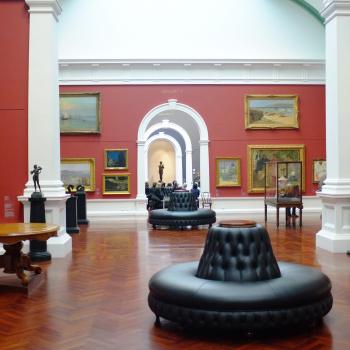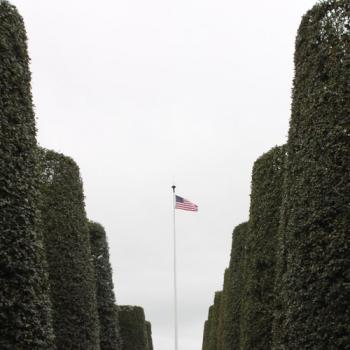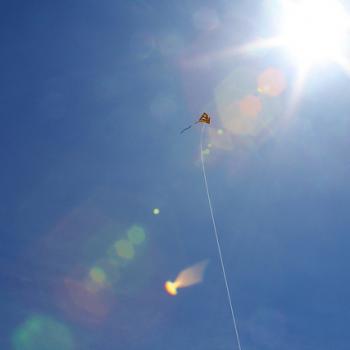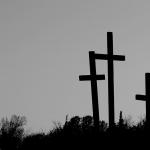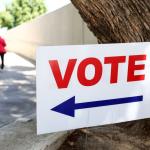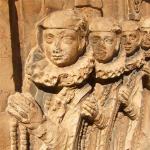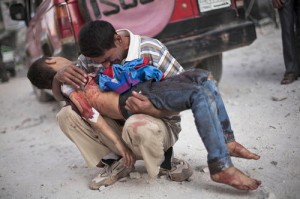 Most years when the Marine Corps birthday comes around, followed immediately by Veterans Day, I reflect on my service. This year I’m not thinking about my time in the Corps, but musing on why I joined in the first place.
Most years when the Marine Corps birthday comes around, followed immediately by Veterans Day, I reflect on my service. This year I’m not thinking about my time in the Corps, but musing on why I joined in the first place.
Anyone who knows me will readily tell you I’m not temperamentally cut out for military life.
I’m also thinking about my boys. My oldest son Evan is sixteen, just two years from the age I was when I enlisted. His brother Asher is fourteen. Neither one of them is military material any more than I was. Neither of them has ever even been in a fight.
A couple Sundays ago, I saw a photo in the newspaper of a Syrian man holding his murdered son. The man is squatting on the dusty ground with the boy stretched across his legs. The boy’s arm hangs between his father’s knees like that of a sleeping child. The kid has on blue jeans, dusty from the knees down, and his bare feet are too large for his body, outsized puppy paws.
The boy’s head is turned away from the camera, his neck cradled in his dad’s arm. The dad’s fingers are long and thin and fan loosely over the boy’s shoulder, as if carrying the boy off to bed.
I had a dual reaction: I felt intense sorrow for the man in the photo, and at the same time immense relief and thankfulness that my own children were in their beds, still asleep.
I started thinking about the differences between my son’s lives and mine when I was young.
I grew up in a bipolar world. Inside my dad’s church I heard turn the other cheek, do not fight back, overcome evil with good. Just outside those church doors however, fighting was the milieu—not armed conflict, not war, but plenty violent still.
The first fight I saw, I was in second or third grade. Bobby Taylor and Perry Troy were evenly matched, and beat the living shit out of each other. They were Elk River boys, tough and mean as only children of the very poor are. After a vicious grappling fistfight in the grass, they stood red faced and panting and discussed who had won. When they couldn’t agree, they fought again. The football lay still while my friends and I watched.
My uncle was shot in the head in a bar fight. Back at my grandmother’s house after the funeral, I watched another of my uncles clean a clinking pile of brown Stroh’s bottles out of the back floorboard of his dead brother’s car. My aunt was watching too, and she looked at me with weary dry eyes and told me to run to the porch swing and grab her Eve cigarettes.
I began fighting in fourth grade when another boy and I agreed that we would fight after school. We met and we fought and when we were tired we quit. We weren’t angry; we liked each other. We were just trying it out.
On a dark winter Sunday afternoon during quiet time between services, I watched from my bedroom window as two neighbors fought at the edge of the church parking lot. One man beat the other down with the butt of a shotgun. The other man covered up as best he could, but took it.
I walked out there before evening service. Dark blooms of blood were soaked into the dirty tire-packed snow. Later that week in jail, the neighbor who had done the beating took his own leather boot strings and hanged himself.
My cousin got in a fight with his next-door neighbor. The man went home and returned with a gun; my cousin had his own gun however, and shot the man dead in his front yard.
A guy with whom I played basketball at the grade school, famous as a badass on the river, picked a fight in a bar parking lot and got himself gut shot. He survived. I went with my dad, the preacher, to visit him in the hospital.
I was in many fights of my own over the years. Most were during grass lot football games, but a few—later, when I was older—became truly dangerous, with the brandishing of firearms.
So we were taught to turn the other cheek inside the church, while outside was a lawless world where young men ran feral. Looking back it seems unusually rough, but I don’t think it was—or is—not for the rural poor. It was what I knew.
I joined the Marines because I was a rather small guy in a world of fighting and I wanted to know how to do it properly.
Many years ago I saw a book put out by Soldier of Fortune magazine about the most dangerous “vacation” spots in the world—a mercenary travel guide, no kidding—and in it the authors claimed that on average there are about thirty armed conflicts going on in the world at all times.
I don’t know where they got their information or if it was correct, but no doubt the world is full violence, even where there’s no war. There are places where people simply cannot turn the other cheek; they must fight if they want to step outside their houses.
Do my boys wander calm neighborhoods in a bubble of peace, without thought for their safety because everyone close by has plenty and the guns surrounding them are pointed outward toward others? It seems to me that yes, this is the case.
The ideal of Christian pacifism appeals to me, but I don’t know how it could possibly exist in the world I know—and I have children to think of.
I would still fight, but now I would do it so they wouldn’t have to. This is simply how the world works: peace is bought with blood.






